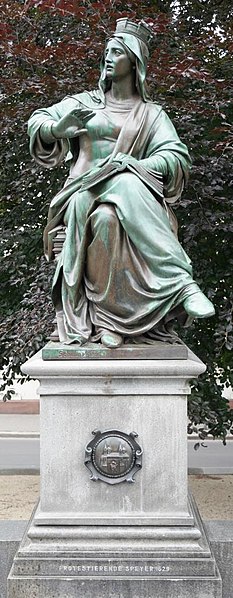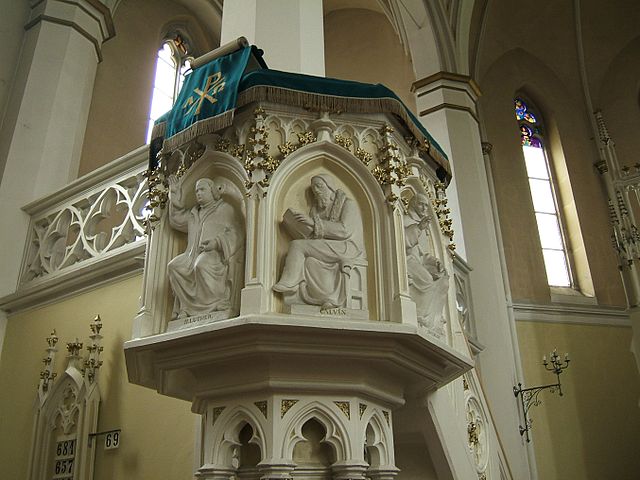Quakers are people who belong to the Religious Society of Friends, a historically Protestant Christian set of denominations. Members of these movements are generally united by a belief in each human's ability to experience the light within or "answering that of God in every one". Some profess a priesthood of all believers inspired by the First Epistle of Peter. They include those with evangelical, holiness, liberal, and traditional Quaker understandings of Christianity. There are also Nontheist Quakers, whose spiritual practice does not rely on the existence of God. To differing extents, the Friends avoid creeds and hierarchical structures. In 2017, there were an estimated 377,557 adult Quakers, 49% of them in Africa.
George Fox, the principal early leader of the Quakers
Quakers
George Fox, a leading early Quaker
James Nayler, a prominent Quaker leader, being pilloried and whipped
Protestantism is a branch of Christianity that emphasizes justification by God through faith alone, the teaching that salvation comes by unmerited divine grace, the priesthood of all believers, and the Bible as the sole infallible source of authority for Christian faith and practice. The five solae summarize the basic theological beliefs of mainstream Protestantism.
The door to All Saints' Church in Wittenberg, where Martin Luther allegedly posted his Ninety-five Theses in 1517 detailing his concerns with what he saw as the Catholic Church's abuse and corruption. The Ninety-five Theses gave rise to Christian Protestantism as one of the world's primary religions, making Wittenberg the "cradle of Protestantism".
Memorial Church, finished and consecrated 1904, in Speyer, Germany commemorates the Protestation.
The Protesting Speyer, part of the Luther Monument in Worms, Germany
Two central figures of the Protestant Reformation, Martin Luther and John Calvin, depicted on a church pulpit; both Luther and Calvin emphasized making preaching a centerpiece of worship.








